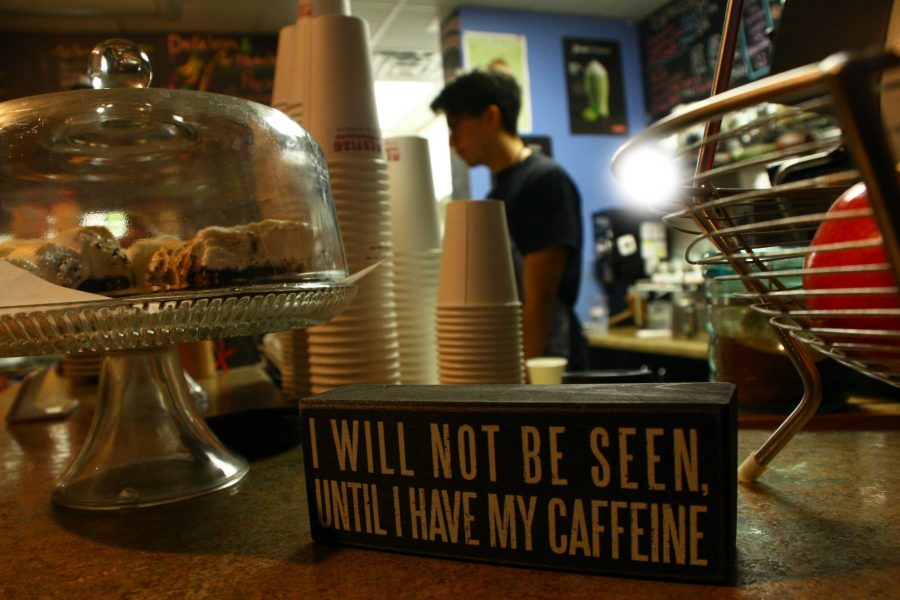With final exams quickly approaching and the semester winding (or crashing) down, many U students have probably swapped eight hours of sleep and a well-balanced diet for all-nighters and a more than slight increase in caffeine consumption.
Of all the things readily available to become addicted to, coffee seems like the least harmful. However, psychologists are now professionally treating those with “caffeine use disorder,” the dependence and subsequent withdrawal experienced by coffee addicts. Forty percent of adults aged 18-24 drink coffee every day, and these trends tend to spike in times of stress or overworking. Additionally, the United States spends $40 billion on coffee each year, with each caffeine-loving American drinking an average of three full cups per day.
To most, taking coffee addiction seriously is laughable. Most people who are addicted don’t even realize they are, seeing their daily coffee consumption as part of a harmless and necessary routine. However, just like any other drug, serious dependence is common and has dangerous side effects. Studies from American University found that unhealthy amounts of caffeine can cause gastrointestinal and prenatal issues, as well as anxiety, insomnia and muscle twitches. Additionally, if you try and kick the bad habit, chances are you’ll be wrought with nausea, depression, extreme fatigue and problems concentrating on tasks.
Doctors at John Hopkins School of Medicine consider coffee the “most widely used drug in the world.” In light of this, it is worrisome that a lack of moderation is so acceptable in our society. I admit to sarcastically diagnosing myself with a caffeine addiction, especially during finals week, but I hadn’t understood the validity of that claim until now. The Diagnostic and Statistical Manual for Mental Disorders classified coffee use disorder as a “condition,” meaning it can be treated professionally, and currently is, with cognitive therapy as well as sessions with trained therapists.
What’s most worrisome is the fact that dependence on coffee is reinforced as soon as you take a break from drinking it, despite its negative effects on the body. Because drinking coffee increases alertness, energy and sociability, individuals will continue to be positively reinforced each time they pour another cup. The cycle is one extremely hard to break, especially because no one sees how dangerous coffee can be if taken in excess, which is usually the only way it is taken. Students should be especially wary of just what constitutes an addiction and recognize that what may work for you during finals week can have serious consequences in the future.



Mike Schiesser • Dec 7, 2015 at 6:06 pm
The people who need to take coffee addiction seriously, are everyone I encounter in the morning before I have had my coffee.
Mike Schiesser • Dec 7, 2015 at 6:06 pm
The people who need to take coffee addiction seriously, are everyone I encounter in the morning before I have had my coffee.
Mike Schiesser • Dec 7, 2015 at 6:06 pm
The people who need to take coffee addiction seriously, are everyone I encounter in the morning before I have had my coffee.
Mike Schiesser • Dec 7, 2015 at 6:06 pm
The people who need to take coffee addiction seriously, are everyone I encounter in the morning before I have had my coffee.
Mike Schiesser • Dec 7, 2015 at 6:06 pm
The people who need to take coffee addiction seriously, are everyone I encounter in the morning before I have had my coffee.
Mike Schiesser • Dec 7, 2015 at 6:06 pm
The people who need to take coffee addiction seriously, are everyone I encounter in the morning before I have had my coffee.